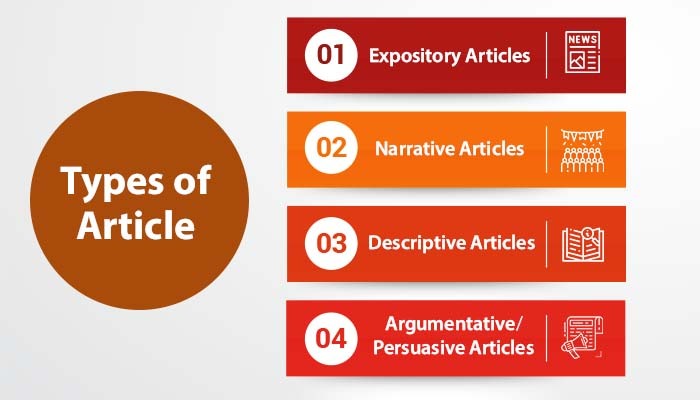The Ultimate Guide to Crafting Compelling Web content with sssdarticles
The Ultimate Guide to Crafting Compelling Web content with sssdarticles
Blog Article
The Mechanics of Articles: A Guide to Their Usages
Recognizing the technicians of short articles is vital for achieving clearness and precision in interaction. The differences between the definite and uncertain write-ups can significantly modify the meaning of a sentence, affecting exactly how information is communicated. Common blunders, such as the wrong application of "a" and "an" or the misuse of posts with vast nouns, can bring about complication. As we check out these subtleties, we will certainly discover not just the guidelines yet likewise the techniques for improving your writing. What effects do these auto mechanics have for efficient expression?

Types of Articles
When it concerns understanding the kinds of posts, it is critical to break down the distinctions that exist amongst them. Articles in the English language are classified primarily into two types: certain and indefinite write-ups.
The certain post, "the," is made use of to describe specific nouns that are known to the viewers. It symbolizes that the noun it modifies is specific and recognizable, distinguishing it from other prospective entities. For example, in the expression "the book on the table," the speaker indicates a details book that both the speaker and audience are acquainted with.
In comparison, indefinite short articles, "a" and "an," are made use of to refer to non-specific nouns. The choice between "a" and "an" depends on the phonetic context of the following word, where "an" is utilized prior to vowel audios.

Definite Post Use
The precise article "the" plays a pivotal duty in defining nouns within a sentence, making it possible for clear interaction of ideas. Its primary feature is to show that the noun it comes before is special or understood to the viewers or listener. In the phrase "the book on the table," "the" signals that a certain publication is being referenced, one that is recognizable in the context.
" The" is generally made use of with singular and plural nouns, along with uncountable nouns, better enhancing its convenience. When talking about ideas, occasions, or entities that are widely acknowledged, such as "the Planet" or "the Web," the guaranteed article offers to emphasize their singularity. Furthermore, it can be used with superlatives, as in "the most effective service," to represent a details level of comparison.
In numerous contexts, the definite article also appears my sources with geographic names, organizations, and social recommendations, such as "the USA" or "the Louvre." Recognizing its suitable use is vital for achieving precision in language, consequently promoting reliable interaction in both created and spoken kinds.
Indefinite Article Use
Indefinite articles, specifically "a" and "an," serve a distinctive objective in language by presenting nouns that are not especially recognized to the viewers or listener. These write-ups convey a sense of generalization, showing that the noun they customize is one of numerous possible circumstances as opposed to a specific entity.
The selection in between "a" and "an" depends on the preliminary sound of the adhering to word. "A" is used prior to words that start with a consonant sound, while "an" comes before words that begin with a vowel noise.
Uncertain posts likewise come right into play when going over professions, citizenships, or affiliations. Overall, the appropriate use of uncertain articles enriches communication by giving clarity and precision concerning the nouns being talked about.
Typical Mistakes to Stay Clear Of
Lots of students run into mistakes when utilizing indefinite short articles, which can lead to confusion in interaction. Furthermore, learners often misuse uncertain write-ups with uncountable nouns, wrongly specifying "a water" instead of simply using "water," which does not need a write-up.
Another regular mistake entails leaving out the official statement indefinite write-up when it is required. One may say "I saw pet dog in the park," neglecting to consist of "a." This noninclusion can make sentences appear insufficient. On the other hand, making use of uncertain articles excessively can likewise cause awkward wording, such as "I had a blast at a the celebration."
Comprehending the contexts in which uncertain short articles must be employed is vital. They are not made use of when referring to official statement basic groups, as in "Pet cats are spirited," rather than "A cat is spirited." Identifying these common blunders will improve clearness and accuracy in written and talked English.
Tips for Effective Use
To properly employ indefinite posts, it is crucial to comprehend their ideal contexts and subtleties. Indefinite articles, specifically "a" and "an," are utilized to refer to non-specific items or to present new principles.

Furthermore, avoid excessive using indefinite short articles in situations where uniqueness is called for. Method analysis different messages to observe how skilled authors utilize uncertain short articles, boosting your understanding of their effective application.
Final Thought
Understanding the distinct functions of definite and uncertain short articles permits for even more efficient expression of ideas. Ultimately, a firm grip of short article use is essential for reliable scholastic and specialist communication.
Report this page